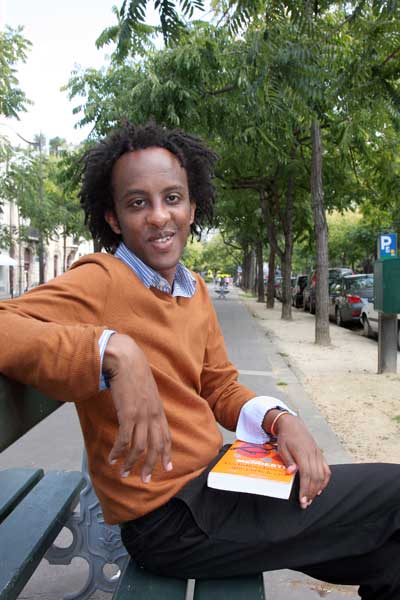How to Read the Air, By Dinaw Mengestu

Your support helps us to tell the story
From reproductive rights to climate change to Big Tech, The Independent is on the ground when the story is developing. Whether it's investigating the financials of Elon Musk's pro-Trump PAC or producing our latest documentary, 'The A Word', which shines a light on the American women fighting for reproductive rights, we know how important it is to parse out the facts from the messaging.
At such a critical moment in US history, we need reporters on the ground. Your donation allows us to keep sending journalists to speak to both sides of the story.
The Independent is trusted by Americans across the entire political spectrum. And unlike many other quality news outlets, we choose not to lock Americans out of our reporting and analysis with paywalls. We believe quality journalism should be available to everyone, paid for by those who can afford it.
Your support makes all the difference.Refugees often flee their homelands empty-handed, but they have plenty of emotional baggage for their children. Jonas Woldemariam's parents were forced to leave Ethiopia three decades ago. Now Jonas is in crisis, trying to make sense of his life in New York. Crucial to this is, he thinks, retracing his parents' disastrous honeymoon trip. Jonas's father was fond of country music and his plan was to drive from their new home in Illinois all the way over to Nashville. The journey was ill-fated - his life in America was already tainted by disillusion, and his violence and emotional withdrawal meant the marriage was doomed.
As for Jonas, to avoid his father's wrath he taught himself to fade into the background and he has developed a tendency to tell listeners what they want to hear. Later on, this carelessness with the truth has severe consequences for his marriage and employment. The flipside is that he has no qualms drawing upon his imagination to embroider his knowledge of his parents' early lives. Their tribulations have made him the person he is, after all, and creating a more satisfying family history might bring him peace of mind.
How to Read the Air is a challenging novel which inhabits the paradoxes of the refugee's story: each one unique and yet universal. Jonas has worked at a refugee centre, where stunning views over Manhattan tantalise desperate clients. He was told to embellish accounts of their misfortunes to win over the authorities. According to his boss, "it's all really the same story. All we're doing is just changing around the names of the countries." The novel's task is to confront this derogation of reality while acknowledging the temptation to iron out tragedies into neat tales.
The lives of Jonas and his own wife, Angela - she is also second generation Afro-American - are little better than his parents'. They remain dogged by chronic insecurity. Angela is an ambitious lawyer with a yen for ruinously expensive shoes, but frets over how little they have put by.
Mengestu covers similar ground here to his excellent debut novel, Children of the Revolution, creating more characters who must come to terms with their short-changing by the land of plenty. There are structural weaknesses, unfortunately. Jonas's narratives of his parents' lives are interleaved with his own experiences, but the segments become overly shortened in a crude attempt to build suspense. Nonetheless, Jonas's paralysed despondency and the novel's unapologetic lack of resolution bring the reader up against the stark realities of cultural deracination.
It will be interesting to see whether Mengestu will develop his subject matter beyond the vicissitudes of migration. In the meantime, he remains resolutely iconoclastic in refusing expectations of affirmative stories of refugees triumphing over adversity.
Join our commenting forum
Join thought-provoking conversations, follow other Independent readers and see their replies
Comments